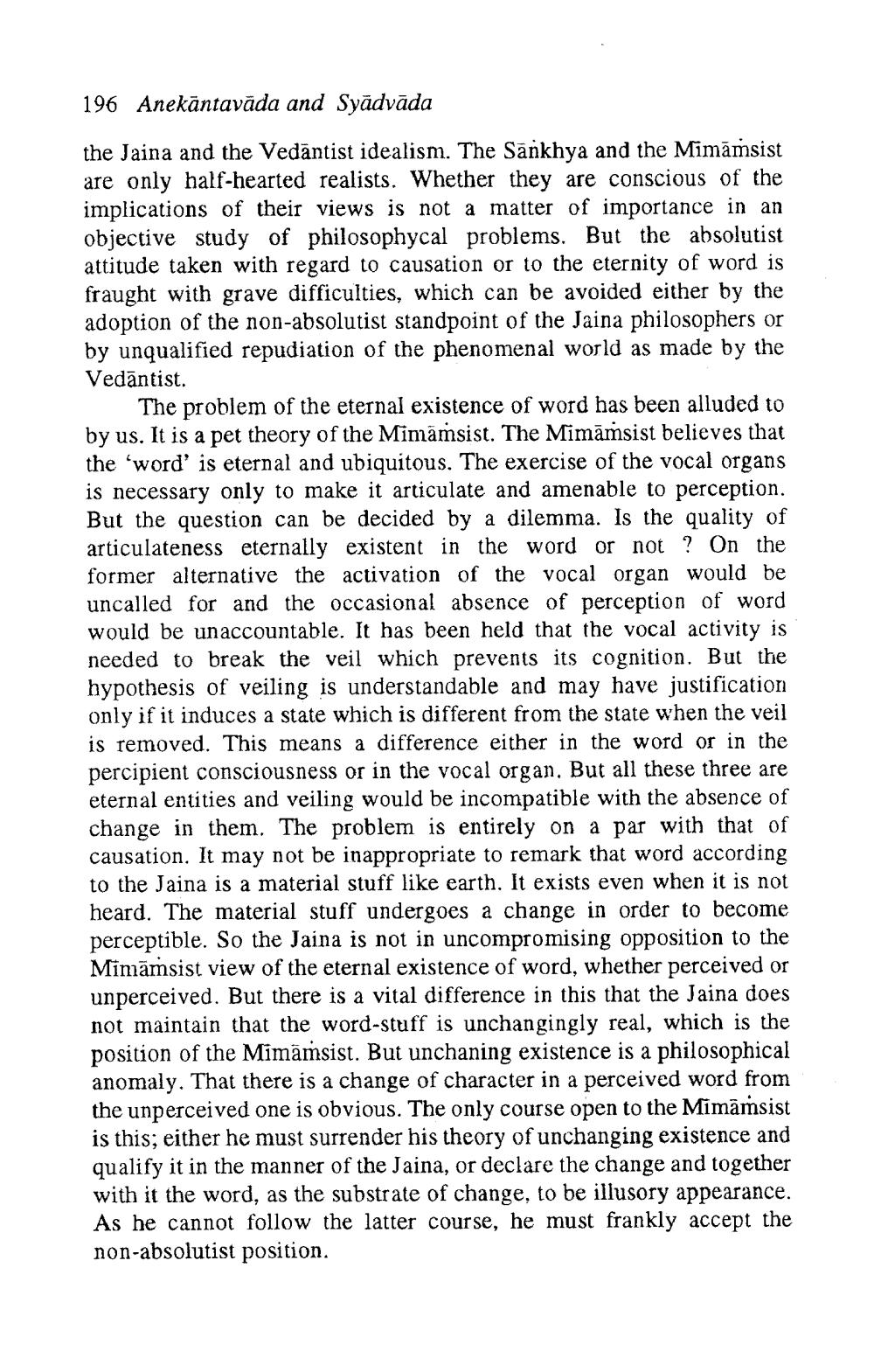________________
196 Anekāntavāda and Syādvāda
the Jaina and the Vedāntist idealism. The Sānkhya and the Mimāmsist are only half-hearted realists. Whether they are conscious of the implications of their views is not a matter of importance in an objective study of philosophycal problems. But the absolutist attitude taken with regard to causation or to the eternity of word is fraught with grave difficulties, which can be avoided either by the adoption of the non-absolutist standpoint of the Jaina philosophers or by unqualified repudiation of the phenomenal world as made by the Vedāntist.
The problem of the eternal existence of word has been alluded to by us. It is a pet theory of the Mimāmsist. The Mimāmsist believes that the 'word' is eternal and ubiquitous. The exercise of the vocal organs is necessary only to make it articulate and amenable to perception. But the question can be decided by a dilemma. Is the quality of articulateness eternally existent in the word or not? On the former alternative the activation of the vocal organ would be uncalled for and the occasional absence of perception of word would be unaccountable. It has been held that the vocal activity is needed to break the veil which prevents its cognition. But the hypothesis of veiling is understandable and may have justification only if it induces a state which is different from the state when the veil is removed. This means a difference either in the word or in the percipient consciousness or in the vocal organ. But all these three are eternal entities and veiling would be incompatible with the absence of change in them. The problem is entirely on a par with that of causation. It may not be inappropriate to remark that word according to the Jaina is a material stuff like earth. It exists even when it is not heard. The material stuff undergoes a change in order to become perceptible. So the Jaina is not in uncompromising opposition to the Mimāmsist view of the eternal existence of word, whether perceived or unperceived. But there is a vital difference in this that the Jaina does not maintain that the word-stuff is unchangingly real, which is the position of the Mimāmsist. But unchaning existence is a philosophical anomaly. That there is a change of character in a perceived word from the unperceived one is obvious. The only course open to the Mimāmsist is this; either he must surrender his theory of unchanging existence and qualify it in the manner of the Jaina, or declare the change and together with it the word, as the substrate of change, to be illusory appearance. As he cannot follow the latter course, he must frankly accept the non-absolutist position.




